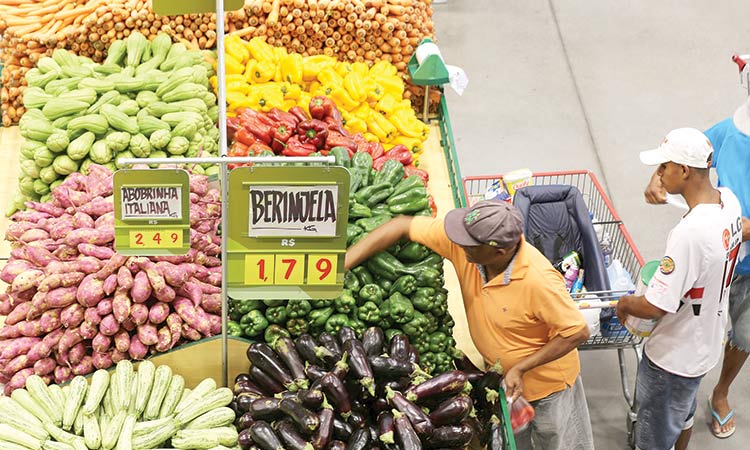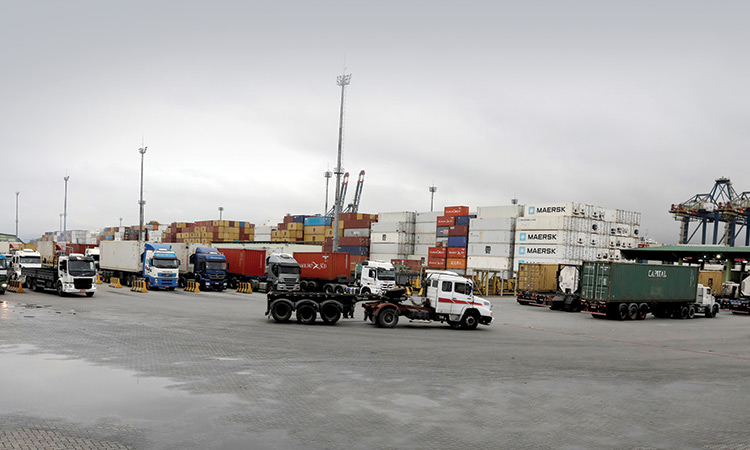Brazil’s inflation hits four-year high on fuel and housing costs

Farmworkers ready vegetables for home delivery in Brasilia, Brazil. File/ Associated Press
The IPCA index rose 0.36% in July, government statistics agency IBGE said, almost exactly in line with the 0.35% that economists in a Reuters poll had expected.
Prices rose 2.31% in the 12 months through July, exactly matching the median forecast of 2.31% in the Reuters poll.
“The rise to 2.3% is unlikely to worry the central bank and, with the economy still very weak, we expect the Selic rate to stay at its current historic low through this year and next,” economists at Capital Economics wrote in a note.
“Price pressures in Brazil remain very weak. The headline rate is well below the central bank’s target and inflation in most parts of the CPI basket other than transport fell between June and July,” they said.
The central bank’s official 2020 inflation target is 4.00%, and 3.75% for next year, with a 1.5 percentage point margin of error on either side.
In its statement accompanying its decision to cut the benchmark Selic rate this week to 2.00%, the central bank acknowledged that inflation is running well below target despite lower borrowing costs and a weak currency.
According to IBGE, the biggest drivers in July were a 0.8% rise in transport costs as fuel prices picked up, and a 0.8% increase in housing costs. Between them, they accounted for nearly 80% of the overall monthly rise in inflation.
Of the nine sectors covered, six showed inflation and three showed prices falling on the month, IBGE said. Clothing saw the biggest decline on the month, dropping 0.5%.
The accumulated rate of inflation in the first seven months of the year was 0.46%, IBGE said, and the 2.3% annual increase marked the second consecutive rise from a historic low of 1.9% in May.
Meanwhile, Brazil’s central bank cut its benchmark interest rate by 25 basis points to a record-low 2.00% on Wednesday, but warned there was little or no room for further monetary stimulus to support an economy ravaged by the coronavirus pandemic.
That marked the smallest rate cut since COVID-19 hit Brazil and was widely expected after policymakers said in recent weeks that further easing could threaten financial market stability.
Although policymakers said again that financial stability concerns could prevent further rate cuts, they did not close the door completely, underscoring the extreme uncertainty about a recovery amid the world’s second-biggest coronavirus outbreak.
“The remaining space for monetary policy stimulus, if it exists, should be small,” Copom wrote in their decision on Wednesday. Policymakers added that any future rate cuts “would occur with additional gradualism” and would depend on the evolving outlook for inflation and public spending.
Policymakers said recent economic indicators in Brazil point to a “partial recovery,” but noted that uncertainty remains high, especially around the end of the year when emergency fiscal stimulus is expected to wind down.
“There is little to gain from further accommodation at this level given financial stability risks, but they were slightly more dovish than expected,” said Drausio Giacomelli, head of emerging market research at Deutsche Bank in New York.
The central bank’s official 2020 and 2021 inflation goals are 4.00% and 3.75%, respectively. Copom expects inflation to get closer to target in 2022.
Reuters







